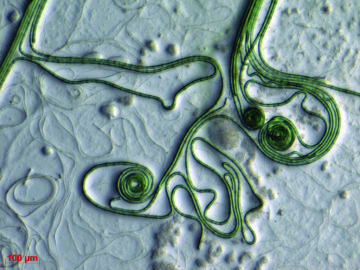Nathan Gardels and Craig Venter at Noema:
 Nathan Gardels: Generative AI has been heralded lately as one of the great game-changing innovations of our time. I remember in one of our conversations years ago when you said already then that biology was becoming a computational science, opening a path to the “dawn of digital life.” What is the impact of the ever-more empowered big data processing of AI, particularly generative AI, on genomics and the potential of synthetic biology?
Nathan Gardels: Generative AI has been heralded lately as one of the great game-changing innovations of our time. I remember in one of our conversations years ago when you said already then that biology was becoming a computational science, opening a path to the “dawn of digital life.” What is the impact of the ever-more empowered big data processing of AI, particularly generative AI, on genomics and the potential of synthetic biology?
Craig Venter: So far, one of the greatest impacts of the use of generative AI has been in improving protein structure predictions, or 3D modeling of gene sequences. That is a big deal because it allows us to understand many of the genes with unknown functions that provide the various chemical signals that determine the growth, differentiation, and development of cells. As far as anybody can tell, the predictions coming out of generative AI seem to be a big improvement over existing algorithms. In 2016 we announced the first synthetic “minimal cell,” a self-replicating organism, a bacterial genome that encoded only the minimal set of genes necessary for the cell to survive. But even at that quite minimal level we still did not know the functions of up to 25% of those genes.
more here.
